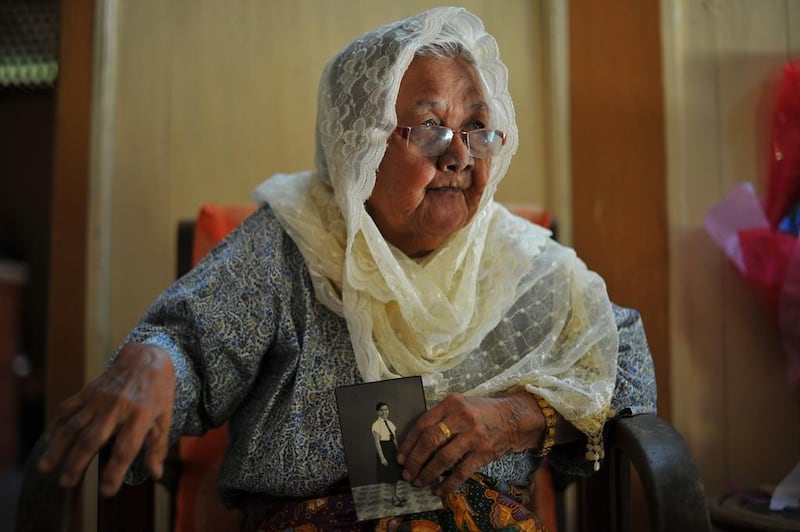JELEBU, Malaysia // A Malaysian family believes a long-lost relative is among three women allegedly held as slaves in London for 30 years and is travelling to Britain to try to identify her.
Siti Aishah Abdul Wahab, who would now be 69, left for Britain around 1968 with her Malaysian fiance, but the relationship soon deteriorated and her family lost track of her, said her brother-in-law Mohamad Noh Mohamad Dom.
His wife, Kamar Mahtum, boarded a flight to London early yesterday hoping to confirm whether the woman was her sister, said Mr Mohamad Noh, 67.
“We have mixed feelings,” he said in Siti Aishah’s hometown of Jelebu in southern Malaysia. “Happy, because we believe we have found a lost family member, and sad, because we hear that she is sick and has been held captive for more than 30 years.”
He said the family was notified by British media that the woman was believed to be Siti Aishah.
British media reports have said the women were held by a radical Maoist couple.
Mrs Kamar, 69, in an interview with Britain’s Daily Telegraph published on Tuesday, described a bright and optimistic young woman. Decades-old photos published in Malaysian media pictured a smiling and fresh-faced student.
After studying at one of Malaysia’s elite schools, she obtained a scholarship to study surveying in England but is believed to have fallen under the spell of the Maoist couple.
The couple, who were arrested last week and released on bail, have been named by British newspapers as Indian-born Aravindan Balakrishnan and his Tanzanian wife Chanda.
Prominent Malaysian activist Hishamuddin Rais has been quoted by local media as saying Siti Aishah had joined several other Malaysian students in a leftist group in Britain called the “New Malayan Youth” in the 1970s.
“When my wife found out that Siti Aishah is alive and has been saved from being held as captive, she cried,” Mohamad Noh said. “My wife has taken with her all the old pictures of Siti Aishah, her school certificate, and even some clothes to help identify if this woman is Siti Aishah.”
Malaysia’s government has not yet commented on the woman’s identity.
The Star newspaper reported yesterday that the country’s High Commission in London was pressing Britain for consular access to her.
“I am not sure if she will remember me but I am hopeful she will,” Kamar told The Malaysian Insider before leaving for London.
British media have reported the Malaysian slave victim had suffered a stroke recently.
The three woman, who also included a 57-year-old Irish woman and a 30-year-old Briton, were freed on October 25 after one of them secretly contacted a charity.
The 30-year-old is believed to have spent her entire life in servitude.
Police said the women, who are believed to have been living in a flat in Brixton, south London, were brainwashed and had reported being beating, but did not appear to have been sexually abused.
Police said Saturday the two older victims had met their male captor through a “shared political ideology” and initially lived with him as part of a collective.
* Agence France-Presse





